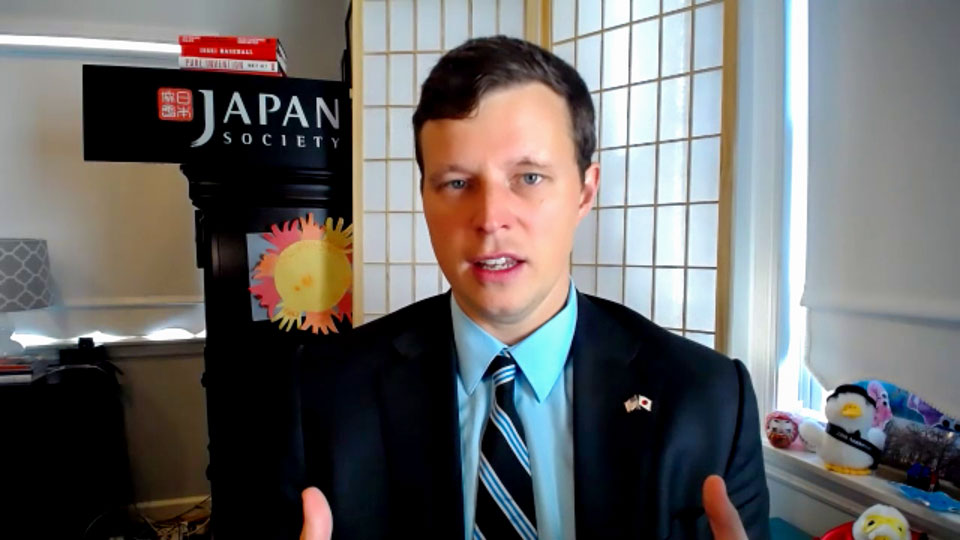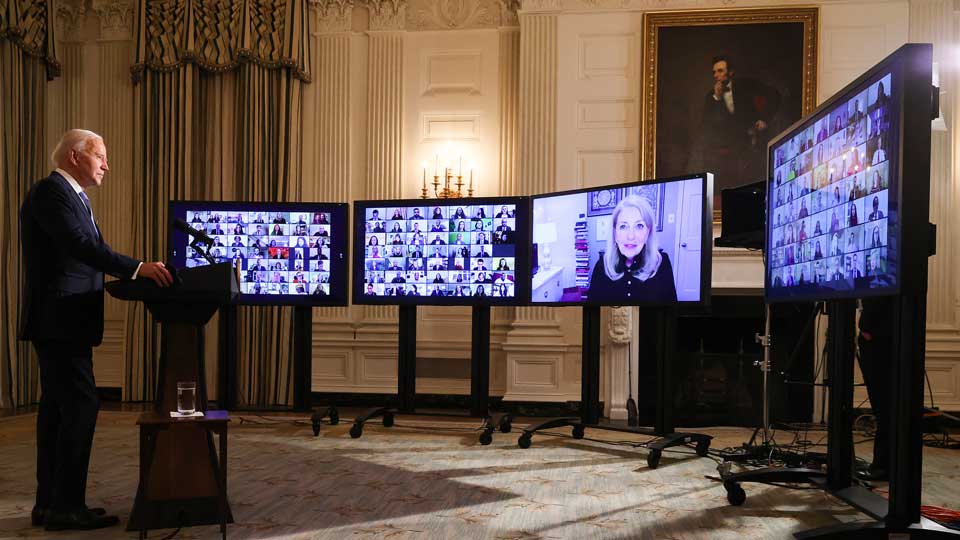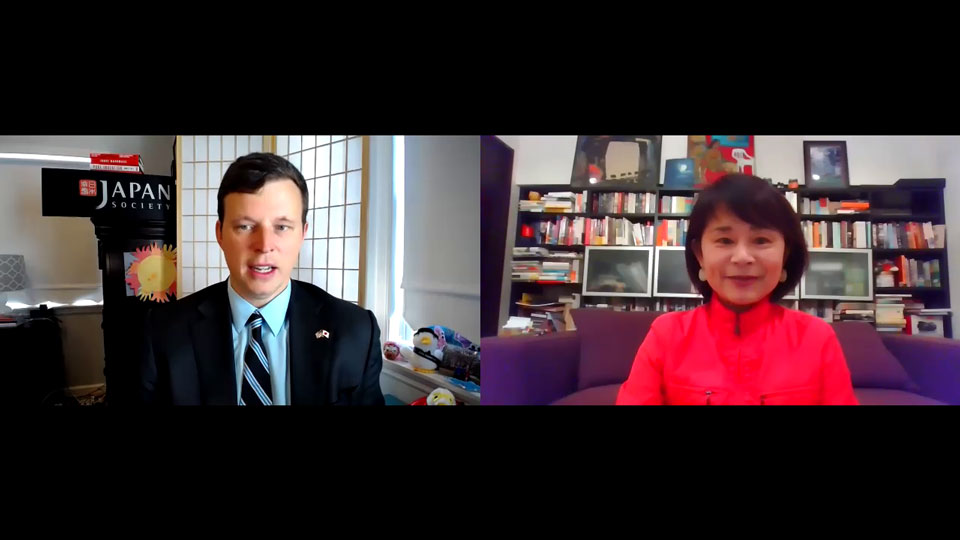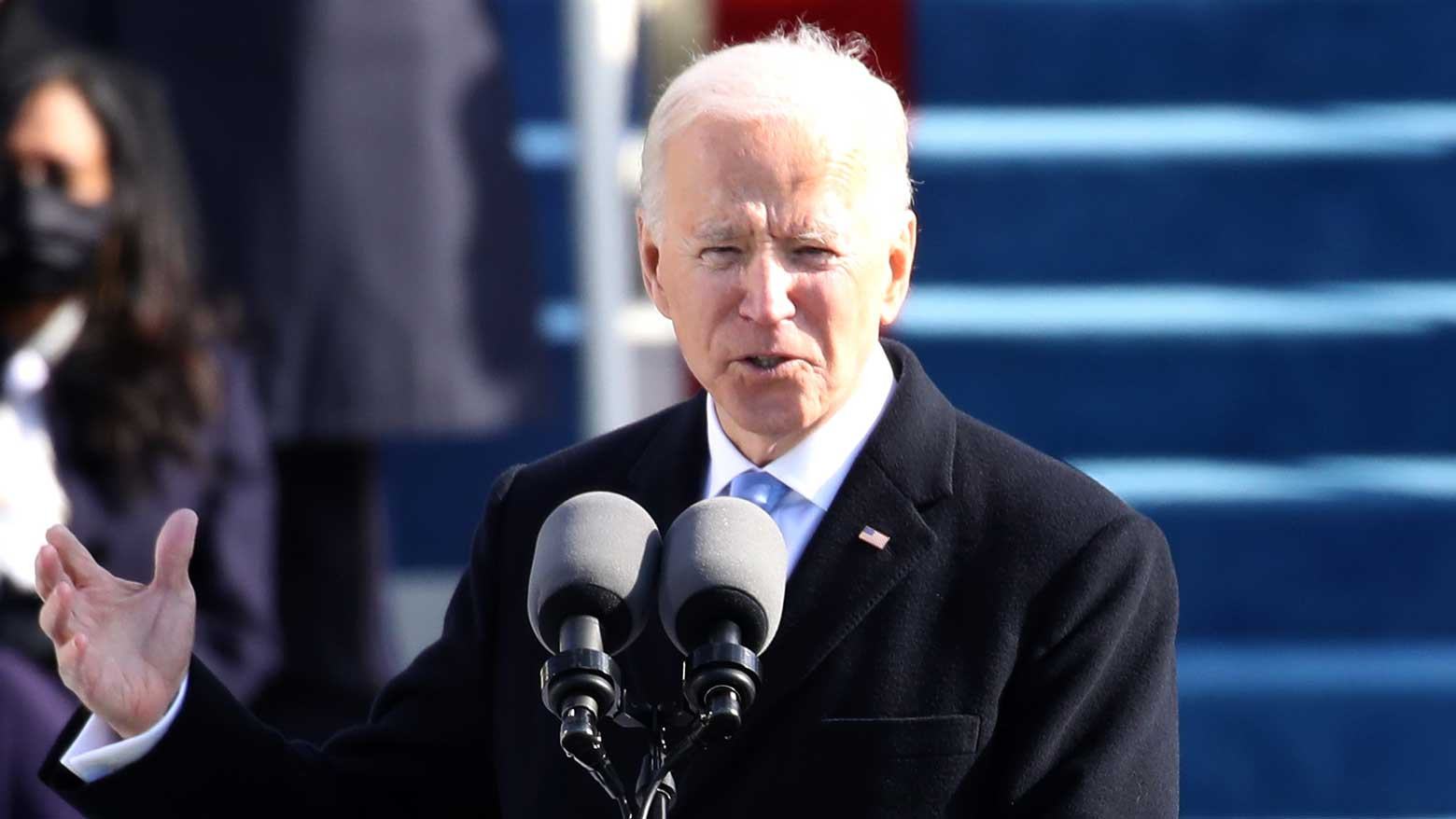With President Biden taking office in Washington, geopolitical analysts are keen to see how the change at the top will affect relations between the US and Japan. NHK World's Ebara Miki spoke to one of them Dr. Joshua Walker, a seasoned Japan watcher who recently became President and CEO of the New York-based non-profit Japan Society. (This interview has been edited for brevity and clarity.)
Ebara Miki: Let's start with a simple question: How do you feel now that you have a new president in the US?
Joshua Walker: The first emotion is relief, but not in the sense that it's over. What we saw in the capital a couple of weeks ago really unleashed what has been brewing for a long time in this country. The divisions are real: the brokenness of how America feels right now, the divide between supporters of former President Trump and supporters of President Biden. America needs to come back together if we're going to lead the world.
As for President Biden, I don't think any president since Franklin Delano Roosevelt has faced a more important 100 days in office. We have to get the coronavirus pandemic under control. We have to focus on working class Americans and we have to repair our image abroad and try to fix the "America first" rhetoric that led to many allies, particularly in Europe to distance themselves from the US.

Ebara: What has been the mood in the US about what transpired at the Capitol?
Walker: There's anger. There's frustration. There was kind of a shock to the system to say, 'Wow, our most sacred democratic ground in the US, the Capitol, was occupied by domestic terrorists and really led to a security concern that none of us predicted. We didn't expect the threat to come from within. We expected an outside threat.' And that's really disturbing to many of us.
Ebara: How will this affect Donald Trump's popularity?
Walker: He still has a larger-than-life personality and has a shadow and unpredictability that everyone is watching. I don't know how the Republicans move on unless they fully repudiate Trump or they say, 'We are the party of populist nationalism and Trump represents that.' Whether he runs again in 2024 or not, we still don't know, and I think Trump will probably keep us guessing, just like he always has in his career. We won't know until 2022 if he decides to run.
Ebara: What do you see from President Biden's cabinet and advisor picks?
Walker: President Biden is being true to his own centrist personality. I think there was a lot of pressure on him to try to satisfy a large coalition in the Democratic Party, from progressives to minorities to diverse voices. And he did a very good job of balancing all these things.
Some of his closest aides—like Tony Blinken as Secretary of State, Jake Sullivan as national security adviser—these are all experienced hands that are, in a moment of crisis, going to have to help the president lead by example and bring people together. He's also appointed two key envoys: John Kerry, the former Secretary of State to be in charge of the climate issue, and Kurt Campbell, former Assistant Secretary of State for East Asian and Pacific affairs under President Obama as coordinator for Indo-Pacific affairs. This type of constellation of friends of Japan who understand the importance of Japan … should give people in Tokyo some comfort in familiarity.

Ebara: What will be the big US foreign policy differences between the Trump and Biden eras?
Walker: The single biggest difference is tone and personality. Trump was a larger-than-life reality TV figure who basically, if you didn't negotiate with the president directly, none of his cabinet officials, none of the institutions of power necessarily mattered. Whereas with Biden, when he says something, the entire apparatus of state has worked on something. That gives our allies, particularly countries like Japan, a sense of comfort. But it makes some of our adversaries, countries like Russia or China, a little bit more nervous because they can't easily manipulate the president. They can't go directly to the president and use ego or Twitter or summit diplomacy like we saw with North Korea. Biden is going to be much more systematic.
Ebara: What will be Biden's top foreign policy priorities?
Walker: The number one foreign policy priority is building America's economy back and focusing on COVID-19. Then climate change and repairing transatlantic relations. In Europe, there was a complete breakdown because of Trump's close relationship with the Russians and particularly President Putin. In Asia, the largest foreign policy challenge that Biden inherits is a conflict, or looming conflict, with China. The US-China relationship is what's going to define the next ten years.
Ebara: And what will Biden's China policy look like?
Walker: The one area that I expect a lot of continuity is actually on China, because Trump's hardline policy on China has actually received bipartisan support. There are very few people, Democrats or Republicans, who think we should have a soft approach to China. And the China hawks are much more on the ascendancy in Washington right now. But I think there's going to be a little bit of an edge to say, 'OK, what are our interests and can we stack them up? If China will help us on climate and China will help us on Iran, can we try to find a way of engaging in a constructive trade and economic relationship where it doesn't have to be zero sum?' And I actually think in this regard, Japan can play a pretty critical role because Japan is a frontline state right next to China. Japan knows better than any country what it's like to deal with China. I think this is where I would expect the Biden administration to work much more closely with our Japanese allies.
Ebara: Will the US-Japan relationship need to be strengthened in that regard?
Walker: US-Japan relations have been really good. Of all the places that Trump was doing a good job, Japan was probably top of the list. There are no two personal leaders that got along better than former Prime Minister Abe and former President Trump. Now that there's been a change in Japan with Prime Minister Suga, I actually think Biden is a better fit for Japan, meaning that they are both political insiders whose entire careers have been built up in the bureaucracy. They're not anti-establishment players. They're not populist by any stretch. Their strength is working within the system. I expect US-Japan relations will continue to strengthen because it goes beyond the government, it goes to our society, our culture, and our businesses to actually invest in each other because we have a common interest. And we have too much at stake in Asia to not work together here.

Ebara: What would your advice be to the two leaders to strengthen their relationship?
Walker: My advice to President Biden would be to focus on areas of common interest and not dwell on the past. There were some real advances made in Japan relations over the last four years. We need to build on those successes. So focus on what our future looks like. At the end of the day, Japan's own economic and domestic recovery, leading to the Olympics this summer, will be a critical milestone that America needs to be part of. And US-Japan relations can get beyond the traditional tricky issues like security issues in Futenma and Okinawa or really strained relations between South Korea and Japan. We need to get back to where these two economies, the first and the third largest, can work together in tandem to help economies like the Chinese fit in and follows the rules-based system that we have been building since the end of World War Two. There's too much at stake here to let domestic politics drive our divisions.
Watch Video 07:38
Watch Video 08:36

